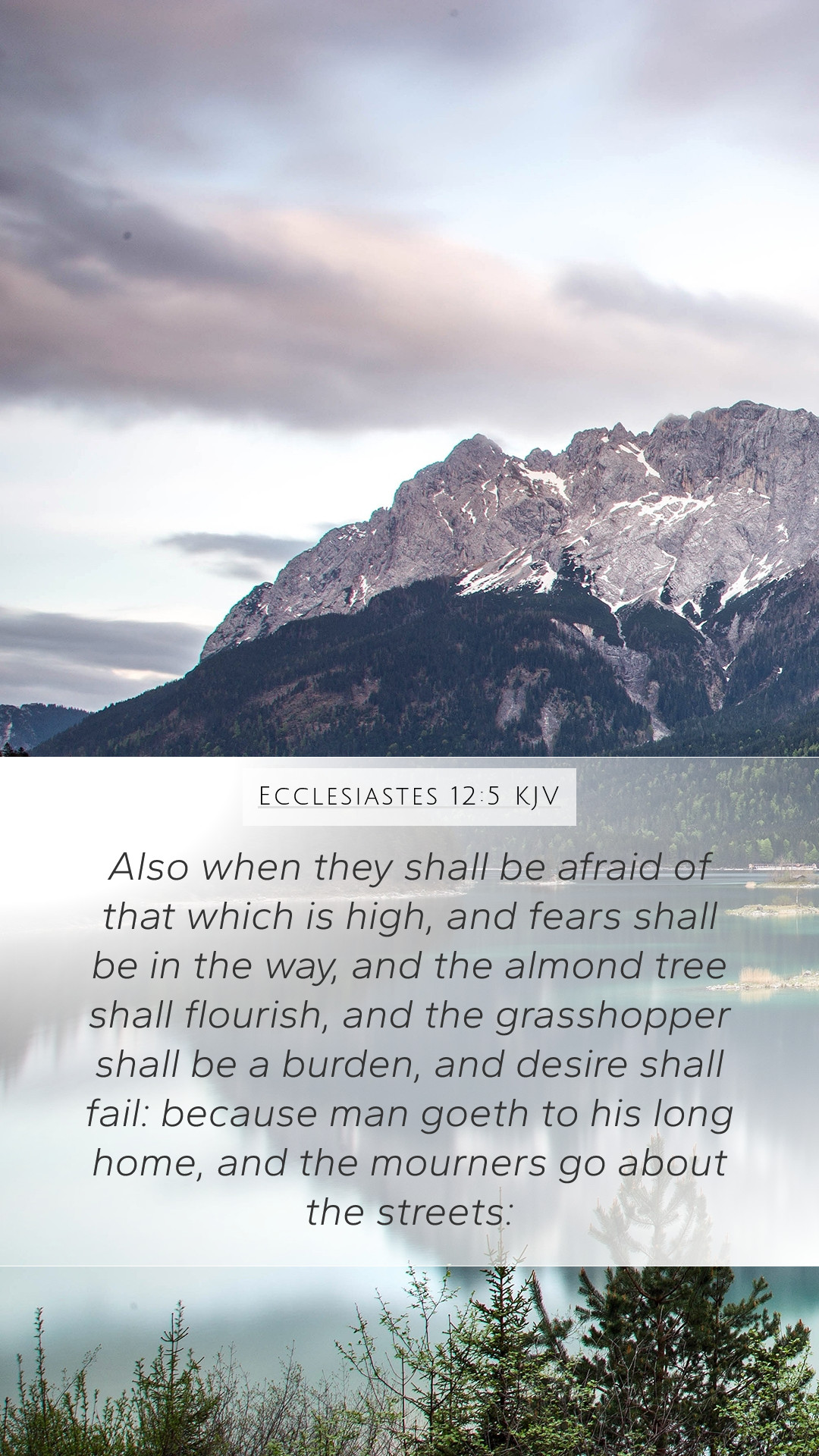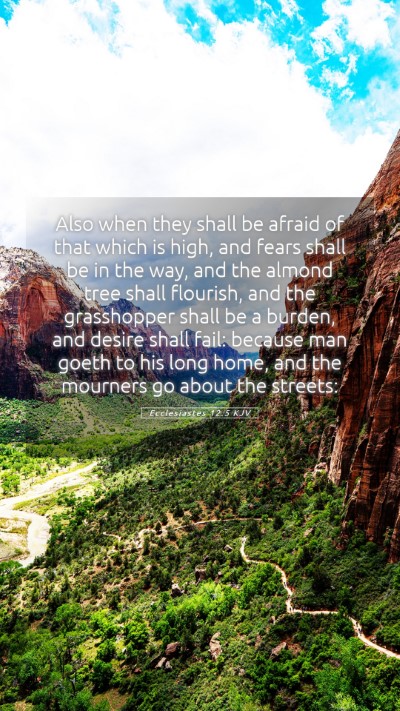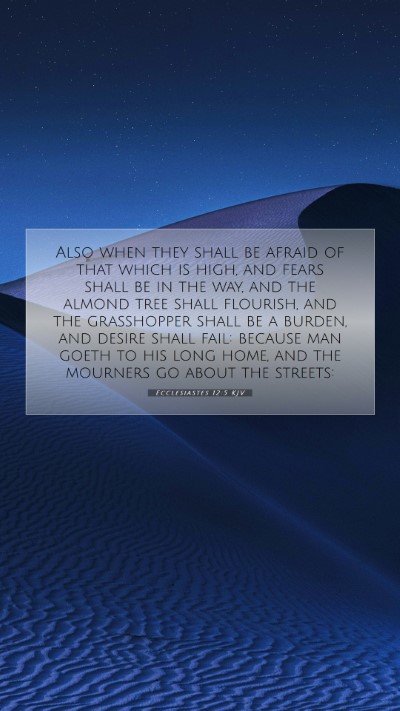Old Testament
Genesis Exodus Leviticus Numbers Deuteronomy Joshua Judges Ruth 1 Samuel 2 Samuel 1 Kings 2 Kings 1 Chronicles 2 Chronicles Ezra Nehemiah Esther Job Psalms Proverbs Ecclesiastes Song of Solomon Isaiah Jeremiah Lamentations Ezekiel Daniel Hosea Joel Amos Obadiah Jonah Micah Nahum Habakkuk Zephaniah Haggai Zechariah MalachiEcclesiastes 12:5 Meaning
What is the meaning of Ecclesiastes 12:5?
Also when they shall be afraid of that which is high, and fears shall be in the way, and the almond tree shall flourish, and the grasshopper shall be a burden, and desire shall fail: because man goeth to his long home, and the mourners go about the streets:
Ecclesiastes 12:5 Bible Verse Meaning
Understanding Ecclesiastes 12:5
Ecclesiastes 12:5 is a meaningful verse that delves into the impacts of aging and the inevitability of death. In this analysis, we combine insights from public domain commentaries to explore the depth and significance of this passage.
Verse Text
"Also when they shall be afraid of that which is high, and fears shall be in the way, and the almond tree shall flourish, and the grasshopper shall be a burden, and desire shall fail: because man goeth to his long home, and the mourners go about the streets." - Ecclesiastes 12:5
Verse Summary
This verse captures the final reflections on life as one approaches old age. The imagery used represents not only the physical realities of aging but also the mental and emotional states associated with the approach of death.
Bible Verse Meanings
The verse illustrates a variety of symbols that suggest fear of heights, the blooming of the almond tree, and a burden becoming overwhelming. These metaphors reveal the complexities of aging, where physical challenges become more pronounced and desires fade away.
Matthew Henry's Commentary
Henry emphasizes the symbolism of the “almond tree” as a sign of old age. The reference to the almond tree blooming signifies the fleeting nature of life's beauty, during which desires and vitality wane.
Albert Barnes’ Commentary
Barnes offers insights that highlight the fears experienced as one grows older. The ‘grasshopper’ symbolizes burdens becoming heavier, ultimately leading to a contemplation of mortality. His analysis suggests a call to reflect on life's transient nature.
Adam Clarke's Commentary
Clarke’s commentary focuses on the inevitability of death, dismissing the realities of aging as something to be embraced. He interprets the verse as a poignant reminder that human life is temporary, urging readers to ponder their own mortality.
Key Themes
- The Reality of Aging: The verse encapsulates the physical and psychological changes that accompany aging.
- Fear and Anxiety: It addresses the fears that surface as one’s strength diminishes.
- Mortality: There is a significant emphasis on the inevitability of death, prompting self-reflection.
- Desires and Aspirations: The fading of desire illustrates the internal changes one undergoes during their later years.
Additional Reflections
Ecclesiastes 12:5 serves as a bridge to discuss the essence of life from a biblical perspective. It invites readers to engage in Bible study insights as it compels a deeper examination of one’s own life stages.
Cross References
- Psalm 90:10: "The days of our years are threescore years and ten; and if by reason of strength they be fourscore years, yet is their strength labour and sorrow; for it is soon cut off, and we fly away."
- Hebrews 9:27: "And as it is appointed unto men once to die, but after this the judgment."
- James 4:14: "For what is your life? It is even a vapour, that appeareth for a little time, and then vanisheth away."
Practical Applications
Understanding this verse is crucial for applying biblical wisdom to daily living, especially in Bible study groups or online Bible study settings. This verse can lead to discussions on:
- How to interpret Bible verses about aging.
- Managing fears related to the future.
- Encouraging a daily application of faith considering life's temporal nature.
Final Thoughts
The exploration of Ecclesiastes 12:5 encourages believers to reflect on their lives and relationships. With aging as an inescapable reality, this verse pushes for a deeper understanding Scripture and seeking significance in every moment. It promotes using Bible study tools and study guides for further exploration of life's essence through the lens of faith.


